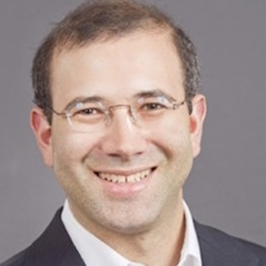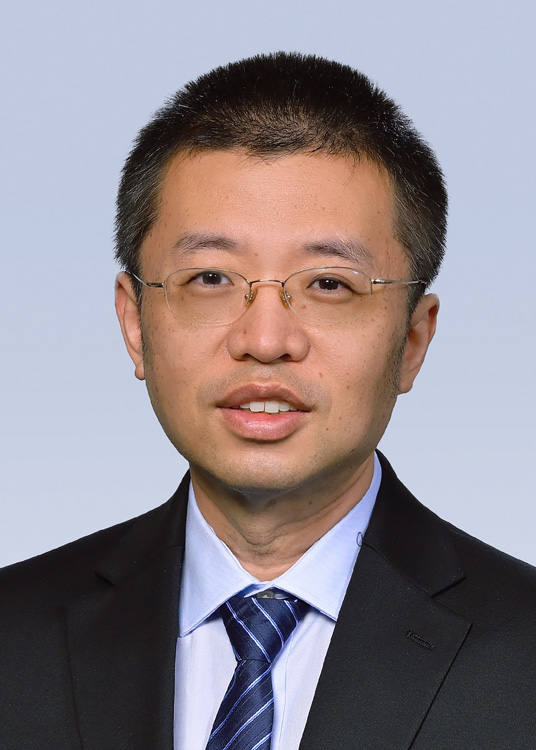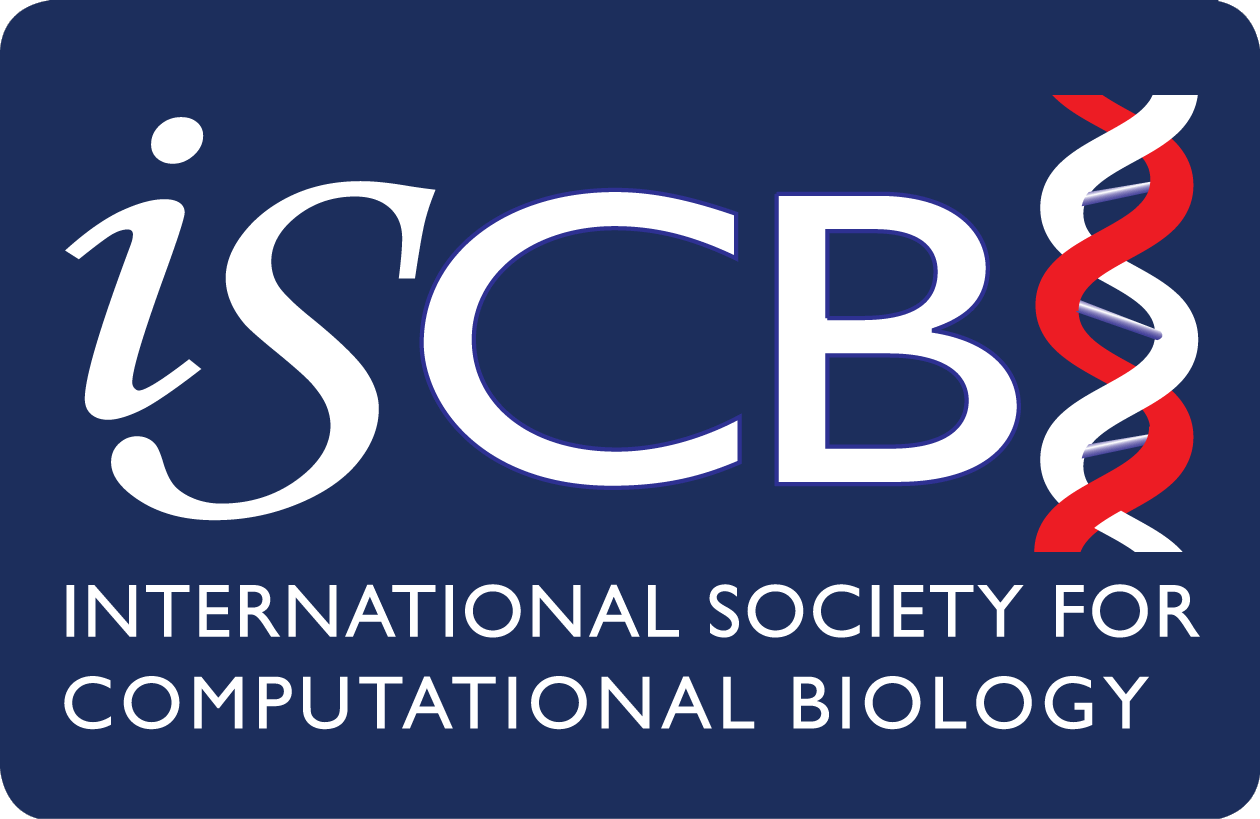Links within this page: Fritz Sedlazeck | Steven Brenner | Xuegong Zhang | Hyun Uk Kim | Stephen Kwok-Wing Tsui | Lana Garmire | Noam Shomron | Yi Xing | Kai Ye | Hao Jiang
 Fritz Sedlazeck
Fritz Sedlazeck
Baylor College of Medicine
https://fritzsedlazeck.github.io/
Dr. Fritz Sedlazeck is an Associate Professor at the Human Genome Sequencing Center at Baylor College of Medicine and an Adjunct Associate Professor at Rice University. His research focuses on algorithmic developments and high-performance computing for genomic and genetic applications. Specifically, he studies ways to improve the characterization of complex genomic alterations between individuals’ genomes based on large genomic sequencing data and as such improve our understanding of complex phenotypes such as human diseases.
Talk Title: Decoding the Dark Genome: How Computational Biology is Democratizing Long-Read
Sequencing
Long-read sequencing is revolutionizing human genomics and genetics by elucidating novel mechanisms concealed from previous technologies. This is highlighted more and more by large population studies such as AllofUs and others. Nevertheless, its transition into the clinical space has not yet occurred due to limitations in the cost and scalability of parts.
To overcome these limitations, we introduce TBAS, a new approach for cost-efficient long-read sequencing for rare diseases, combined with new analysis methods. TBAS achieves a 76% solving rate in our study of trios, providing double the coverage on important regions while halving the cost of sequencing. This represents a scalable approach to identify SNVs, indels, SVs, TRs, and methylation variations in one go. Furthermore, it elucidates the important interactions between variants highlighting the need for comprehensive genomics at scale.
Beyond germline diagnosis, a fundamental limiting factor in human genomics is the detection of cell type-specific mutations at scale. To facilitate a broader understanding of the impact and occurrence of these mosaic/somatic structural variants (SVs) across diverse human tissues, particularly in contexts like neurological diseases or cancer, we present our newest computational method. This approach enables the detection of subtle, cell-type-specific mutations using inexpensive bulk sequencing data. This computational approach facilitates the study of mosaic SVs across human tissues, ultimately improving our understanding of the occurrence and impact of mosaic mutations in healthy aging and disease.
This talk will detail novel methodology that enable novel insights into biology and medical research. Furthermore, I will discuss the remaining computational and algorithmic challenges necessary to fully democratize long-read sequencing and foster its applications across clinical and population genomics.
 Steven Brenner
Steven Brenner
UC Berkeley
https://compbio.berkeley.edu/
Steven Brenner’s research is primarily in the area of computational genomics, including genome variation interpretation, genomic privacy, RNA regulation, protein structure evolution, and function prediction. He has a particular interest in the use of genome sequencing in newborns for population screening and new methods for genomic diagnosis.
Brenner’s undergraduate research was in the first genome laboratory, mentored by Walter Gilbert at Harvard. He received his M.Phil. from the Department of Biochemistry at Cambridge University, and earned a Ph.D. from the University of Cambridge and the MRC Laboratory of Molecular Biology where he studied with Cyrus Chothia. Brenner had a fellowship at the Japan National Institute of Bioscience, followed by postdoctoral research supervised by Michael Levitt at Stanford University School of Medicine.
Brenner has a commitment to supporting open science and development of a diverse, inclusive scientific community. He is currently a member of the ClinGen Sequence Variant Interpretation Working Group and Chair of the Computational subgroup, a director of the Human Genome Variation Society, and a chair of the HUGO Pathogenicity Committee. He was founding chair of the Computational Biology graduate program at Berkeley, a founding editor of PLoS Computational Biology, a founding chair of the Global Alliance for Genomics and Health’s Data Working Group Variant Annotation Task Team, and was a founding director of the Open Bioinformatics Foundation, His recognitions including being a Miller Professor, a Sloan Research Fellow, a Searle Scholar, an AAAS Fellow, an ISCB Fellow, and a recipient of ISCB’s Overton Prize.
 Xuegong Zhang
Xuegong Zhang
Tsinghua University
http://eca.xglab.tech/member/index.html
Xuegong Zhang is Professor of Pattern Recognition and Bioinformatics in the Department of Automation, Tsinghua University, and Adjunct Professor of the School of Life Sciences and Tsinghua Medicine. He received his BS degree in 1989 and his Ph.D. degree in 1994 both from Tsinghua University, after which he joined the faculty of Tsinghua University. He was a visiting scientist at Harvard School of Public Health in 2001-2002 and 2006, and was a visiting scholar at University of Southern California in 2007. His research interests include machine learning, human cell atlas, intelligent precision medicine, AI foundation models and digital life systems. His early work on detecting differential gene expression from very small samples has been widely used in many labs across the globe, and his leading work on AI foundation models for single-cell transcriptomics put him as a pioneer of current AI biology. Dr. Zhang was elected as ISCB Fellow and CAAI Fellow in 2020, and was elected as the Vice President of ISCB in 2024. He is currently the co-Editors-in-Chief of the journal Quantitative Biology, the Vice President of ISCB, Chair of ISCB-China, and Chair of the Committee of Intelligent Health and Bioinformatics of Chinese Association of Automation (CAA).
Talk Title: On Routes Toward AI Virtual Cells
Building computational virtual models of cells that can simulate the biochemical processes of cells has been a long-standing goal for many scientists in the fields of molecular and cell biology, computational biology, and systems biology. Recently, the unprecedented accumulation of massive single-cell transcriptomics and other omics data, together with the revolutionary breakthrough in AI foundation models, have aroused a new wave for building AI models of virtual cells or AIVCs. As a common phenomenon in a rapidly developing field, people often use the same word to mean different things and also use different words to mean the same thing. This talk will provide an overview of the different views and approaches for building virtual cells, propose a multi-level construct of AIVC which academic labs of smaller scales can work on, and share our practices in building prototypic AIVC models with AI foundation models and biology-aware interpretable AI models.
 Hyun Uk Kim
Hyun Uk Kim
KAIST
https://pure.kaist.ac.kr/en/persons/hyun-uk-kim
Prof. Hyun Uk Kim is an Associate Professor at KAIST, affiliated with the Department of Chemical and Biomolecular Engineering and the Graduate School of Engineering Biology. He obtained his B.Sc. (2005) from Yonsei University and his M.Sc. (2007) and Ph.D. (2011) from KAIST. His research focuses on bio-big data and AI-driven systems biology, with applications in synthetic biology/metabolic engineering and precision medicine. He has published 98 scientific papers. His recent work includes the development of DeepEC, a deep-learning model for enzyme function prediction (PNAS, 2019); DeepMGR, a deep-learning model for predicting gene expression patterns under specific microbial culture conditions (Computational and Structural Biotechnology Journal, 2023); prediction of oncometabolite candidates (Genome Biology, 2024); A machine learning framework for extracting biological pathway information from large-scale literature sources (Metabolic Engineering, 2024); and prediction of multi-drug responses using electronic health records (Computers in Biology and Medicine, 2025). He has received several awards, including the KAIST College of Engineering Technology Innovation Award (2019) and the Impact Research Award (2019, 2021–2024). In 2021, he was appointed as a Kwon Oh-Hyun Associate Professor and received the Young Scientist Award from the Korean Society for Biotechnology and Bioengineering in 2020. He has been an invited/keynote speaker at international conferences, including Metabolic Engineering 15 (Singapore, 2023), The Automated Scientist by the Novo Nordisk Foundation (Denmark, 2024), and the 1st Asia & Pacific Bioinformatics Joint Conference (APBJC2024) (Japan, 2024).
Talk Title: Systems and machine learning approaches to predict drug targets and drug responses
The utilization of bio big data through computational models can aid in predicting drug targets for various diseases as well as drug responses. In cancer research, for example, a substantial amount of bio big data has been accumulated, including patient-specific omics data (e.g., RNA-seq) and medical data (e.g., survival data). In this talk, I will first elaborate on computational approaches that leverage omics data, particularly RNA-seq, to predict drug targets. Genome-scale metabolic models (GEMs), which simulate a target cell’s metabolic phenotypes by accounting for all metabolic reactions in the cell, play a key role here. These computational approaches aim to predict oncometabolites and drug targets for drug-resistant cancer cells and high-risk cancer patients. Oncometabolites, which accumulate abnormally in cancer cells due to gene mutations, exhibit pro-oncogenic functions and may also serve as
biomarkers. Furthermore, I will discuss AI-driven approaches for predicting drug responses, where medical data play a crucial role. Ongoing efforts to generate and apply meaningful bio big data, alongside the effective use of computational models, are set to revolutionize our approach to addressing medical challenges.
 Stephen Kwok-Wing Tsui
Stephen Kwok-Wing Tsui
The Chinese University of Hong Kong
https://ihome.sbs.cuhk.edu.hk/StephenTsui/
Prof. Stephen Kwok-Wing Tsui is currently a Professor and the Associate Director (Research) in the School of Biomedical Sciences of The Chinese University of Hong Kong (CUHK). In 1995, he received his PhD degree in Biochemistry at CUHK. He was then appointed as an Assistant Professor in the Biochemistry Department in 1997 and promoted to the full professorship in 2004. He found the Hong Kong Bioinformatics Centre in 1997 and was also a former member of the International HapMap Consortium working on the single nucleotide polymorphisms of human chromosome 3p. During the SARS outbreak in 2003, his team was one of the earliest teams that cracked the complete genome of the SARS-coronavirus and facilitated the emergence of real-time PCR assay for the virus. Totally, he has published more than 300 scientific papers in international journals, including Nature, Nature Machine Intelligence, New England Journal of Medicine, Lancet, Circulation, Journal of Allergy and Clinical Immunology, Allergy, Nucleic Acids Research, Genome Biology and PNAS. The h-index and citations of his publications are 63 and over 26,000, respectively. His major research interests are next generation sequencing, bioinformatics and human genetic diseases.
Talk Title: Accurate Protein Classification in the Era of Large Language Models
Accurate protein classification has long been a fundamental challenge in bioinformatics and molecular biology. With the advent of large language models (LLMs), such as the GPT series, new opportunities have arisen for improving protein classification accuracy. These models, originally designed for natural language processing, have demonstrated remarkable capabilities in understanding and generating text. Leveraging these capabilities, researchers have started exploring their potential in protein classification tasks. In this talk, I will introduce two projects: allergen prediction and antibody characterization. The allergen prediction project applies protein LLMs and outperforms previous studies. The antibody characterization project utilizes 18 popular LLMs across 5 families in 3 specific antibody characterization scenarios. Both projects demonstrate the superior performance of applying LLMs in protein classification problems. We anticipate that the rapid development of LLMs will further revolutionize this specific area and the general bioinformatics field.
 Lana Garmire, PhD
Lana Garmire, PhD
University of Michigan
https://sph.umich.edu/faculty-profiles/garmire_lana.html
Dr. Garmire is an awardee of US Presidential Early Career Scientists and Engineers in 2019, the highest honor bestowed to the most outstanding early career scientists and engineers in the United States. Before joining University of Michigan DCMB department, she rapidly rose to tenure (Dec. 2012 to Jun. 2017) at University of Hawaii Cancer Center, and has become a nationally and internationally recognizable translational bioinformatics scientist leading a multidisciplinary team of computational and experimental human genomics. Garmire has won numerous competitive federal grant awards as the PI, including NIH/NIGMS P20 COBRE (2014-2018, Project Leader), NIH/BD2K K01 award (2014-2021), three concurrent NIH R01 grant awards from NICHD (2016-2021), NLM (2016-2021), and NLM (2019-2022). In 2012, she won the first bioinformatics NIH SBIR grant for Asuragen Inc (a spin-off of Ambion, the RNA company), and then resumed the tenure-track faculty position since September 2012. Dr. Garmire collaborates with a variety of top researchers nationally and internationally. She has published over 50 papers in high quality journals including Cell and Nature. She has mentored over 40 MD fellows, postdocs, graduate students and undergraduates of various academic backgrounds, in Biology, Mathematics, Physics (bio)Statistics, Bioengineering, Computer Science and Electrical Engineering. She has served on various NIH study sections. She is an Associate Editor of BMC Bioinformatics and Guest Editor of PLoS Computational Biology.
Talk Title: STDrug: a Computational Method to Use Spatial Transcriptomics to Aid Personalized Drug-reposition Recommendation
Drug repurposing is a cost-effective strategy for accelerating therapeutic discovery, yet existing single-cell RNA-seq (scRNA-seq)-based methods often overlook the spatial context critical for capturing tissue-specific drug responses. We introduce STDrug (Spatial Transcriptomics aided Drug repurposing), a personalized computational framework that leverages spatial transcriptomics data to improve drug repurposing. STDrug identifies paired spatial domains between diseased and control tissues using graph convolutional networks and coherent point drift alignment. It then prioritizes candidate drugs by integrating tumor-reversible gene signatures, perturbation-based reversal scores, and GPT-4o-assisted gene weighting through an XGBoost model. By incorporating spatial domain interactions, drug efficacy, and toxicity, STDrug computes robust patient-level drug scores. Applied to hepatocellular carcinoma and prostate cancer, STDrug outperformed scRNA-seq-based approaches, achieving higher AUCs and consistent predictions across patients. Real-world validation using large-scale electronic health records and in vitro validation support the clinical relevance of top-ranked candidates, establishing STDrug as a spatially informed platform for personalized drug repurposing.
 Noam Shomron
Noam Shomron
Tel Aviv University
https://en-med.tau.ac.il/profile/nshomron
Noam Shomron is passionate about using basic science to advance better healthcare. He is a Professor of Digital Medicine and Functional Genomics at the Faculty of Medical & Health Sciences at Tel Aviv University after training at MIT. He leads a multidisciplinary team of scientists that develops computational methods for parsing big data in the bio-medical field using Artificial Intelligence. Noam published hundreds of peer-reviewed publications on multiple genomic fields; Editor of ‘Deep Sequencing Data Analysis’ book (Springer, Edition I 2013, and II 2021); Director of Djerassi Institute of Oncology; Academic Director of ‘ScienceAbroad’ (NPO); ranked Major in the army forensic lab; Co-founder of several Biotech and Digital Medicine companies: Variantyx, GotSho, IdentifAI, Everly Bio, 4nZOK, among others.
 Yi Xing
Yi Xing
Children's Hospital of Philadelphia Research Institute
https://www.research.chop.edu/people/yi-xing
Yi Xing, Ph.D. is Associate Chief Scientific Officer for Omics, Technology & Engineering at the Children’s Hospital of Philadelphia (CHOP), where he also serves as Executive Director of the Department of Biomedical and Health Informatics, Founding Director of the Center for Computational and Genomic Medicine, and the Francis West Lewis Chair in Computational and Genomic Medicine—an endowed position named after the physician who founded CHOP as the first children’s hospital in North America in 1855. He is also a Professor in the Department of Pathology and Laboratory Medicine at the University of Pennsylvania.
Dr. Xing is internationally recognized for his research at the interface of computational biology, genomics, and precision medicine, with a focus on transcriptomics, RNA regulation, rare diseases, and cancer immunotherapy. His lab develops innovative computational and experimental technologies to decipher transcriptomic variation and translate RNA-level insights into clinical applications.
Talk Title: From Splicing Graph to RNA Medicine
 Kai Ye
Kai Ye
Xi’an Jiaotong University
Dr Kai Ye is professor of genetics at Xi’an Jiaotong University, China. He received his BS in
Biopharmaceutical science from Wuhan University in 1999 and his PhD in computer science from
Leiden University in 2008. His research interests focus on novel algorithm development for the
detection of indel and structural variation as well as their applications in evolution and disease.
Recently he proposed the seq2image that transforms sequential biological data into structured 2D
image representations to facilitate both automated analysis by visual AI models and enhanced
human interpretation of complex genomic information.
Talk Title: A seq2image approach for genome sequence analysis
Genomic sequences are inherently linear, and researchers have traditionally favored simplified modeling and computation directly at the sequence level. Following a reductionist approach, these sequences are often further abstracted into random strings for analysis. However, this simplification overlooks the intrinsic non-randomness of genomic sequences. As a result, when faced with diverse species, complex genetic backgrounds, or various disease contexts, researchers are frequently forced to introduce ad hoc modifications. This gradually transforms initially elegant mathematical models into overly complex, patchwork systems that are difficult to maintain and extend. To address these limitations, we previously explored solving complex genomic problems—such as complex structural variant detection and genome annotation—by transforming one-dimensional sequences into two-dimensional image representations. This approach has yielded promising results. By projecting linear sequences into image space, we enable hybrid encoding of both data and domain knowledge. The external (shallow) features of sequences—such as linear and nonlinear base arrangements and repetitive patterns—can be effectively captured through image-based representations. Simultaneously, the internal (deep) structural, functional, and biological regularities of the genome can be encoded using the multi-channel spatial advantages of images. Overall, this image-based strategy enhances both the dimensionality and depth of genomic sequence representation, allowing us to uncover complex patterns and relationships that remain hidden in one-dimensional sequence space.
 Hao Jiang
Hao Jiang
Renmin University of China
https://sl1nk.com/lxexL
Hao Jiang received the B.Sc. degree from the Harbin Institute of Technology, Harbin, China, in 2009, and the Ph.D. degree from the University of Hong Kong, Hong Kong, in 2013. She is currently a Professor with the School of Mathematics, Renmin University of China, Beijing, China. Her research interests include bioinformatics, data mining, learning-based modeling, optimization, and control of complex systems. She is currently serving as Member of ISCB China Council, and Technical Program Committee member of International Conference on Biomedical and Bioinformatics Engineering.
Talk Title: Intelligent ensemble learning method for heterogeneity analysis of single-cell RNA-sequencing data
Single-cell transcriptomics has revolutionized the characterization of cell states, with multi-omics profiling further enabling deep functional insights. However, effectively mining cellular heterogeneity from noisy, sparse, and complex single-cell data remains challenging. We propose two novel ensemble learning frameworks that construct and optimize the consensus matrix in an adaptive and robust manner. First, we introduce scEWE, a self-representative ensemble learning method that employs a high-order element-wise weighting strategy to assign cell-specific weights to base clusterings. Second, we present scRECL, a contrastive ensemble learning approach that leverages siamese neural networks trained on multiple K-nearest neighbor partitions to derive low- dimensional embeddings. By integrating multiplex graphs for representative cell selection, scRECL effectively reduces noise and redundancy while enhancing latent feature representation. Both method capture nonlinear cellular relationships and significantly improve the accuracy of cellular similarity representation. Extensive experiments demonstrate that our approaches outperform existing state-of-the-art techniques, underscoring their effectiveness and potential for robust single-cell data analysis.










